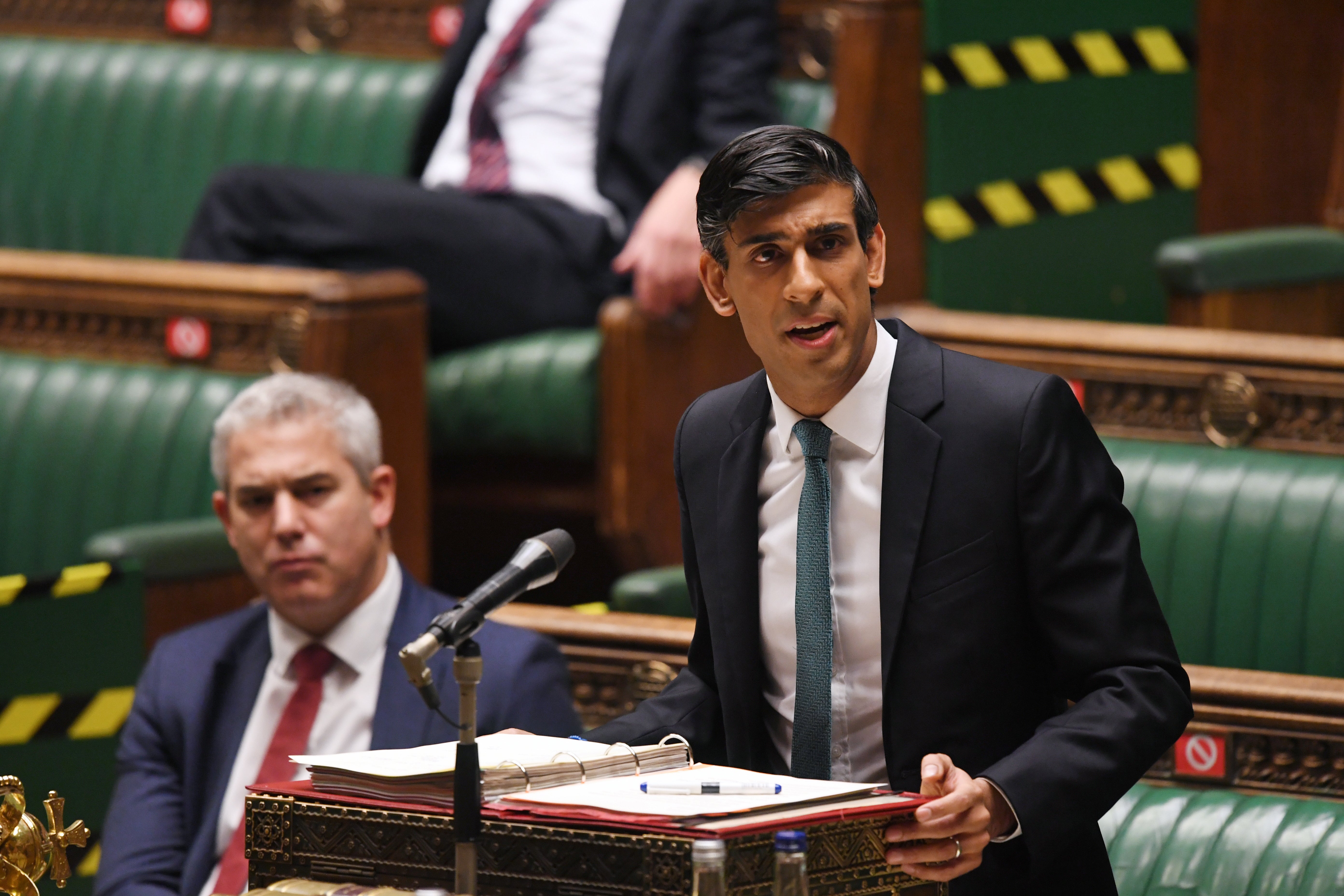Will Boris Johnson force Rishi Sunak to keep the higher rate of universal credit?
Classically, prime ministers tend to be keener on public spending than chancellors, writes John Rentoul


Rishi Sunak is trying to head off demands to keep the higher rate of universal credit, which will be pressed by the Labour opposition in the Commons today. The chancellor has come up with a plan to give claimants a £500 lump sum, which is equivalent to six months’ worth of the extra £20 a week, in return for putting universal credit rates back to their pre-crisis levels.
He hopes the lump sum will buy off pressure to make the higher rates of universal credit permanent. But it certainly won’t be enough to satisfy Keir Starmer, who will press the opposition’s motion to a vote in the Commons this evening, even if Sunak’s plan makes it explicit that Labour will be arguing for £6bn a year of higher public spending for the foreseeable future.
The higher payments were introduced at the start of the pandemic last year, and are due to expire in April – which may or may not be around the time that the coronavirus restrictions start to be eased. The Treasury was always anxious that, having raised universal credit rates, it would be politically hard to lower them again, and so it has proved. Boris Johnson is said to be in favour of keeping the higher rate indefinitely – classically, prime ministers tend to be keener on public spending than chancellors.
The government is sufficiently worried about tonight’s votes that it has ordered its MPs to abstain, worried that voting against the Labour motion will be portrayed as grinding the faces of the poor. The prime minister explained to Conservative MPs via WhatsApp: “Folks, I know that many of you are thirsting to give battle and vote against all Labour motions. But after the shameful way in which they used their army of Momentum trolls last time to misrepresent the outcome and to lie about its meaning and frankly to intimidate and threaten colleagues – especially female colleagues – I have decided not to give them that opportunity.”
There are some signs that Sunak’s lump sum plan might give him a way through the choppy politics ahead. The Northern Research Group of 50 Conservative MPs representing seats in the north and midlands last week called for the higher rate to be provided “until lockdown is lifted” – which is different from calling for it to be made permanent.
Stephen Crabb and Iain Duncan Smith, former work and pensions secretaries who had been agitating against the cut, also seem to be arguing for an extension rather than a permanently higher rate.
Labour and some think tanks, on the other hand, argue that the coronavirus crisis has merely exposed the inadequacy of universal credit rates, and that a permanent increase is needed. “The truth is we need a permanently higher basic level of protection,” argues Torsten Bell of the Resolution Foundation.
However, if that is the opposition’s argument, it ought to go further than simply seeking to entrench the £20-a-week extra for those lucky enough to be on universal credit. The problem is that universal credit is being introduced gradually, and there are still millions of people on the “legacy” benefits which universal credit is going to replace – and their rates have not been increased. Some of these claimants are disabled with complex needs – they have not been transferred to universal credit yet partly because their cases are not simple – and many of them have suffered badly during lockdowns. But if Labour argues to fix this unfairness it will be advocating even higher welfare spending.
Perhaps public opinion will support that in these exceptional times, but most Conservatives seem to think that the voters will back a less generous policy by the time of the next election.
Join our commenting forum
Join thought-provoking conversations, follow other Independent readers and see their replies
Comments


Bookmark popover
Removed from bookmarks